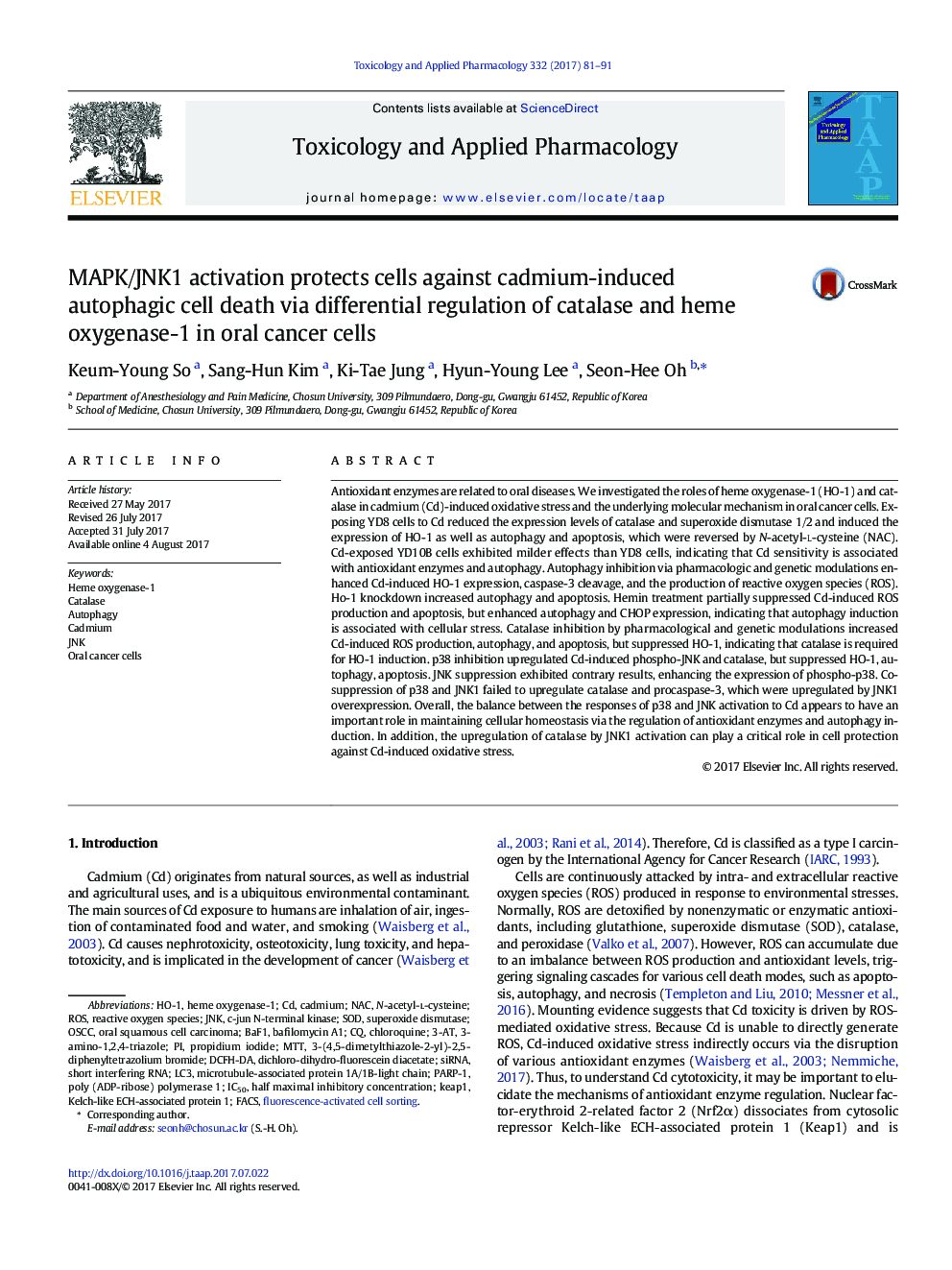| Article ID | Journal | Published Year | Pages | File Type |
|---|---|---|---|---|
| 5558394 | Toxicology and Applied Pharmacology | 2017 | 11 Pages |
â¢Cadmium exposure to oral cancer cells reduced catalase and induced HO-1.â¢Cadmium-induced oxidative stress caused autophagy and apoptosis induction.â¢Autophagy inhibition upregulated HO-1 and apoptotic cell death.â¢Overexpression or knockdown of HO-1 upregulated ROS-mediated autophagy level.â¢JNK1 activation suppressed autophagy via increasing catalase and reducing HO-1level.
Antioxidant enzymes are related to oral diseases. We investigated the roles of heme oxygenase-1 (HO-1) and catalase in cadmium (Cd)-induced oxidative stress and the underlying molecular mechanism in oral cancer cells. Exposing YD8 cells to Cd reduced the expression levels of catalase and superoxide dismutase 1/2 and induced the expression of HO-1 as well as autophagy and apoptosis, which were reversed by N-acetyl-l-cysteine (NAC). Cd-exposed YD10B cells exhibited milder effects than YD8 cells, indicating that Cd sensitivity is associated with antioxidant enzymes and autophagy. Autophagy inhibition via pharmacologic and genetic modulations enhanced Cd-induced HO-1 expression, caspase-3 cleavage, and the production of reactive oxygen species (ROS). Ho-1 knockdown increased autophagy and apoptosis. Hemin treatment partially suppressed Cd-induced ROS production and apoptosis, but enhanced autophagy and CHOP expression, indicating that autophagy induction is associated with cellular stress. Catalase inhibition by pharmacological and genetic modulations increased Cd-induced ROS production, autophagy, and apoptosis, but suppressed HO-1, indicating that catalase is required for HO-1 induction. p38 inhibition upregulated Cd-induced phospho-JNK and catalase, but suppressed HO-1, autophagy, apoptosis. JNK suppression exhibited contrary results, enhancing the expression of phospho-p38. Co-suppression of p38 and JNK1 failed to upregulate catalase and procaspase-3, which were upregulated by JNK1 overexpression. Overall, the balance between the responses of p38 and JNK activation to Cd appears to have an important role in maintaining cellular homeostasis via the regulation of antioxidant enzymes and autophagy induction. In addition, the upregulation of catalase by JNK1 activation can play a critical role in cell protection against Cd-induced oxidative stress.
Graphical abstractp38 and JNK1 activation by cadmium-induced oxidative stress differentially and complementarily regulate catalase and HO-1 induction; thus, the balance between their activations determines downstream signaling pathways.Download high-res image (144KB)Download full-size image
